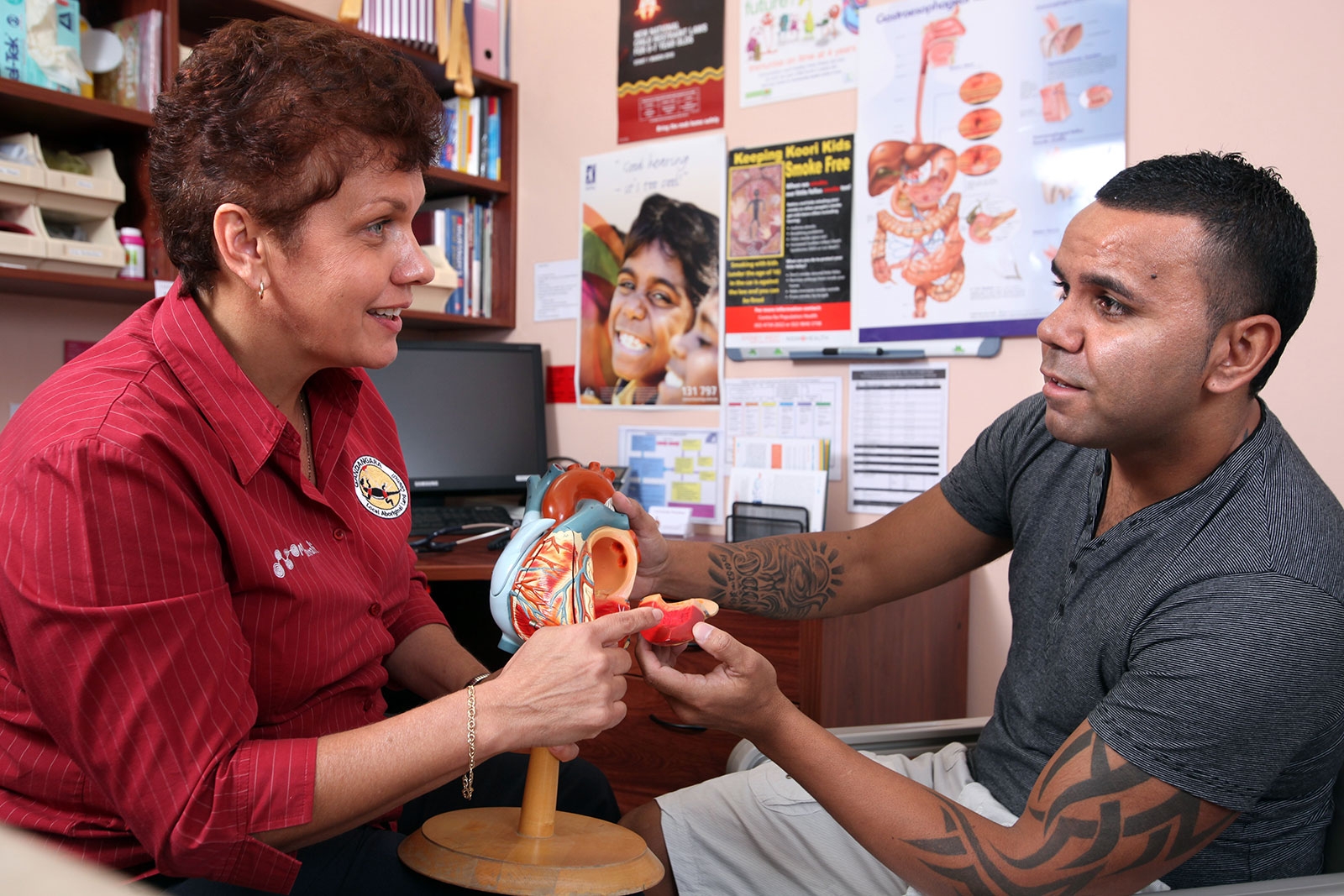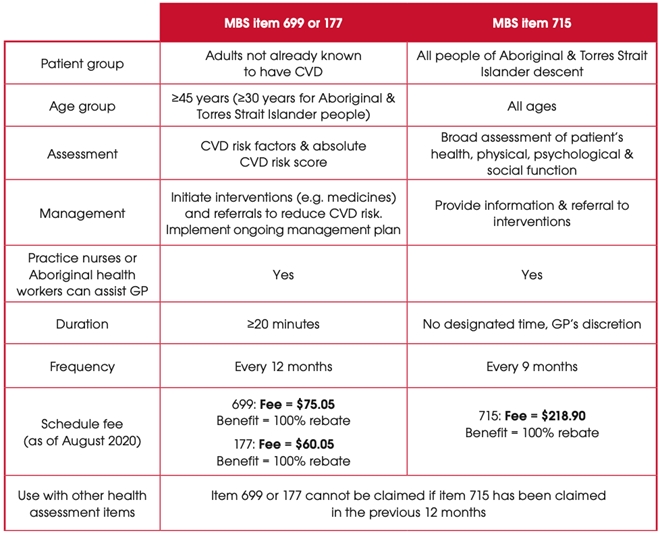
Aboriginal and/or Torres Strait Islander Peoples and the Heart Health Check
/
Aboriginal and/or Torres Strait Islander Peoples and the Heart Health Check
Recommendations for Aboriginal and/or Torres Strait Islander Peoples
Cardiovascular disease is the biggest contributor to preventable morbidity and mortality among Aboriginal and/or Torres Strait Islander Peoples.
Emerging evidence shows:
cardiovascular events such as heart attack and stroke occur 10 to 20 years earlier in Aboriginal and/or Torres Strait Islander Peoples than in non-Indigenous Australians
three out of four Indigenous Australians under 35 years have one or more risk factors for CVD.
In March 2020 a consensus statement was published that makes new recommendations for assessing cardiovascular disease risk in Aboriginal and/or Torres Strait Islander Peoples aged under 35.
Recommendations
- Aboriginal and/or Torres Strait Islander Peoples without existing CVD should undergo CVD risk factor screening from the age of 18 years at the latest. This includes diabetes and chronic kidney disease.
- Aboriginal and/or Torres Strait Islander Peoples without existing CVD should undergo a CVD risk assessment from age 30 years at the latest (cvdcheck.org.au). This now aligns with the Heart Health Check MBS item eligibility criteria.
- Assessment should occur as part of an annual health check or opportunistically. Subsequent reviews should be conducted according to the level of risk.
- Decisions about management should be made through a shared decision-making framework.
- Aboriginal and/or Torres Strait Islander Peoples aged 18–29 years with the following clinical conditions are automatically conferred a high CVD risk status:
- type 2 diabetes and microalbuminuria
- moderate to severe chronic kidney disease
- high blood pressure: systolic blood pressure ≥1180 mmHg or diastolic blood pressure ≥110 mmHg
- high cholesterol: serum total cholesterol >7.5 mmol/L
- familial hypercholesterolemia
An absolute CVD risk calculation should be carried out during the 715 assessment.
How to incorporate absolute CVD risk assessment into the 715 assessment
- Ensure good continuity of care by registering Aboriginal and/or Torres Strait Islander Peoples under Closing the Gap targets.
- Establish systematic practice processes for eligible patients, e.g.
- include CVD pathology requirements in recall process
- revise practice templates to incorporate CVD risk calculation
- allow sufficient time to cover family history
- set the next appointment before the patient exits the practice.
The Heart Health Check compared to the 715 assessment
Key differences between the Heart Health Check (MBS item 699 or 177) and the health assessment for Aboriginal and Torres Strait Islander people (MBS item 715).

More information
CVD risk assessment for Aboriginal and Torres Strait Islander adults (Heart Foundation web page)
Read next ...
Referral programs
References
J Agostino, D Wong, E Paige, V Wade, C Connell, ME Davey, DP Peiris, D Fitzsimmons, CP Burgess, R Mahoney, E Lonsdale, P Fernando, L Malamoo, S Eades, A Brown, G Jennings, RW Lovett and E Banks, ‘Cardiovascular disease risk assessment for Aboriginal and Torres Strait Islander adults aged under 35 years: a consensus statement’, Med J Aust, 2020; 212(9):422-427, doi:10.5694/mja2.50529.

Toolkit contents
Explore the list of pages in the Heart Health Check Toolkit for health professionals.

About the Toolkit
Supporting general practices to integrate Heart Health Checks into routine patient care, with a range of resources and easy-to-use tools in one place.

Downloadable resources
A full list of ready-to-use resources available in this Toolkit
Last updated21 March 2024
Last reviewed15 March 2024